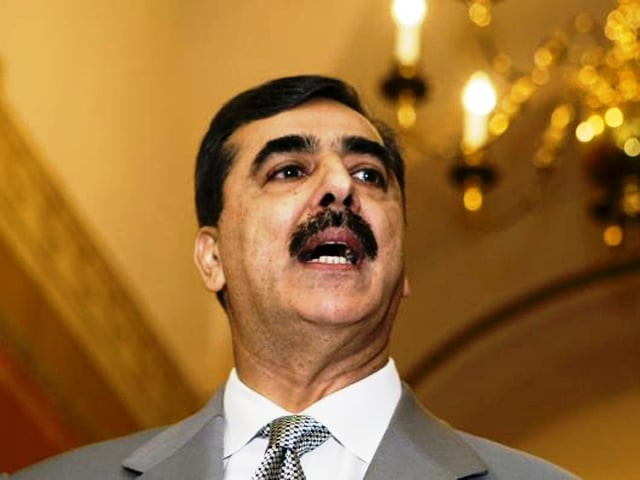The numbers belie the rhetoric

The finance ministry’s calculations show that the move to freeze non-salary current expenditures – the only ‘significant’ measure announced by the government – to last year’s levels will not make a significant impact on the soaring budget deficit after all.
Nevertheless, the finance ministry has written to all concerned government departments and ministries to surrender the extra allocated funds aimed at implementing the government decision. However, it is yet to be seen whether these departments accept fully. The government has estimated that during the financial year 2010-11, current expenditures would remain at Rs1.98 trillion. After freezing the non-salary expenditures at last year’s levels, the figure would come down to Rs 1.93 trillion – a difference, as mentioned earlier, of just 0.24 per cent. The non-salary expenditures include goods purchases, petrol and stationery.
The percentage is even more meagre when compared to the total size of the budget, which stands at Rs2.764 trillion. The fiscal austerity measure is 0.17 per cent of this figure.
“It is not the number, but the message that matters at the end”, insisted Special Secretary Finance, Asif Bajwa.
He said that, by freezing the expenditures at last year’s levels, the government is, on the face of it, saving a few billion rupees; but, in real terms, it is also reducing the expenditures by another ten per cent if this year’s projected inflation rate, 9.5 per cent, is taken into account.
Provisional statistics show that the government’s inability to increase revenue and cut its expenditure widened the gap between its income and expenditures to over Rs909 billion during the last fiscal year.
The government has estimated that the income-expenditure gap would remain at Rs685 billion during this fiscal year. However, international donor agencies have doubts over this number and are pressuring the government to get its act together by controlling the non-development expenditures, restructuring bleeding public sector entities and, more importantly, increasing revenue.
The International Monetary Fund has already warned the government that it must implement the reformed General Sales Tax by October 1 or it will cease its $11.3 billion bail-out programme. The government is still reluctant to take measures such as rationalising the size of the cabinet – a move which can help significantly in controlling unnecessary expenditures.
The finance ministry has asked the Prime Minister Secretariat to surrender Rs18.3 million out of a total allocated budget of Rs485 million, which is less than four per cent of this year’s allocation.
The Presidency, allocated a Rs427.3-million budget, has been requested to return Rs17.8 million under the austerity measure, which is just 4.2 per cent of the allocation.
The finance ministry allocated Rs1.6 billion to the National Assembly, which is now supposed to surrender Rs61.4 million, or 3.8 per cent, of the budgeted amount. The Senate’s current year budget is Rs907.6 million, of which it has been asked to return Rs40 million or 4.4 per cent.
The Cabinet Division will surrender Rs370 million and the Establishment Division is to return Rs111.3 million. The National Accountability Bureau is directed to surrender Rs54 million – 7.7 per cent of the allocated budget. The Commerce Ministry has been asked to surrender Rs309.7 million, or 6.2 per cent of its budget.
The law ministry has been directed to surrender Rs219 million out of its Rs2.1 billion allocation.
The finance ministry recently briefed the prime minister about the negative impacts of the government’s non-productive expenditures. The premier asked the economic managers to bring their own house in order.
Published in The Express Tribune, July 22nd, 2010.


1724319076-0/Untitled-design-(5)1724319076-0-208x130.webp)
















COMMENTS
Comments are moderated and generally will be posted if they are on-topic and not abusive.
For more information, please see our Comments FAQ